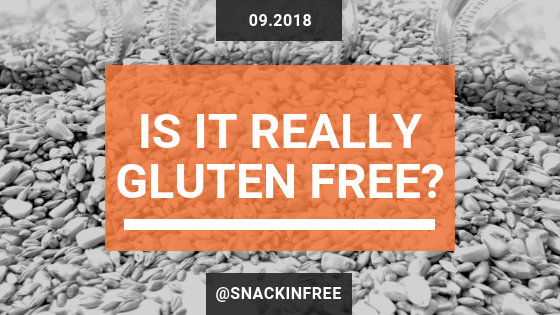
Is it Really Gluten Free?
Did you know there are grains believed to be gluten-free by FDA food labeling standards and widely used as gluten-free substitutes? But recent research has proven some of these grains contain proteins that mimic the proteins in Gluten. So is it really gluten free?
- Corn – Corn contains a type of gluten protein called zein. Studies show that people with gluten sensitivity have trouble healing and persistent disease if they continue to consume corn-based products.
- Rice – Rice contains a type of gluten protein called orzenin. It also contains proteins that have been linked to FPIES (Food Protein Induced Enterocolitis) – AKA inflammation of the colon. Rice has also been shown to be high in several heavy metals, which is also bad for health.
- Millet – Millet contains ontains a type of gluten protein called panicin.
- Sorghum – Sorghum contains a type of gluten protein called kafirin.
These grains have all been found to contain different forms of gluten that contribute to chronic health issues for those with celiac disease, gluten sensitivities and those struggling with an autoimmune disease.
There are also pseudo-grains that have proteins that mimic gluten such as quinoa, buckwheat, and amaranth. Quinoa proteins actually are known to mimic gluten proteins and cause inflammation in those with gluten sensitivity; while buckwheat and amaranth are actually known to have issues with gluten cross-contamination.
A 2010 study showed 400 new types of gluten were found in grains. 10% of the new types of gluten are more toxic than the original form of gluten (alpha-gliadin). “Because all grains contain gluten (in different forms), and only a fraction of these glutens have been studied, it is foolish to assume that traditional “gluten free” grain based substitutes are safe for consumption for the gluten sensitive individual.”
As many as 92% of the people who follow a gluten free diet continue to have health problems because of cross-contamination, processed food, and consumption of corn, rice, sorghum and other grains which contain other gluten proteins.
We do not use grains or pseudo-grains in any of our products. We feel it is important for our customers who have celiac and other autoimmune diseases to be able to eat any of our products.
(Dr Peter Osborn – The Gluten Free Warrior)Read more at https://www.glutenfreesociety.org/new-glutens-discovered-to-be-harmful-to-health/#W9ZsxzJFqtJWv2TG.99
Read more at https://www.glutenfreesociety.org/46-facts-about-gluten/#2kERFAIji1HbWLwx.99
